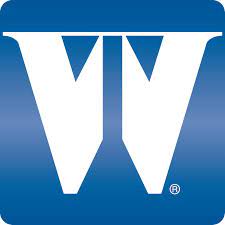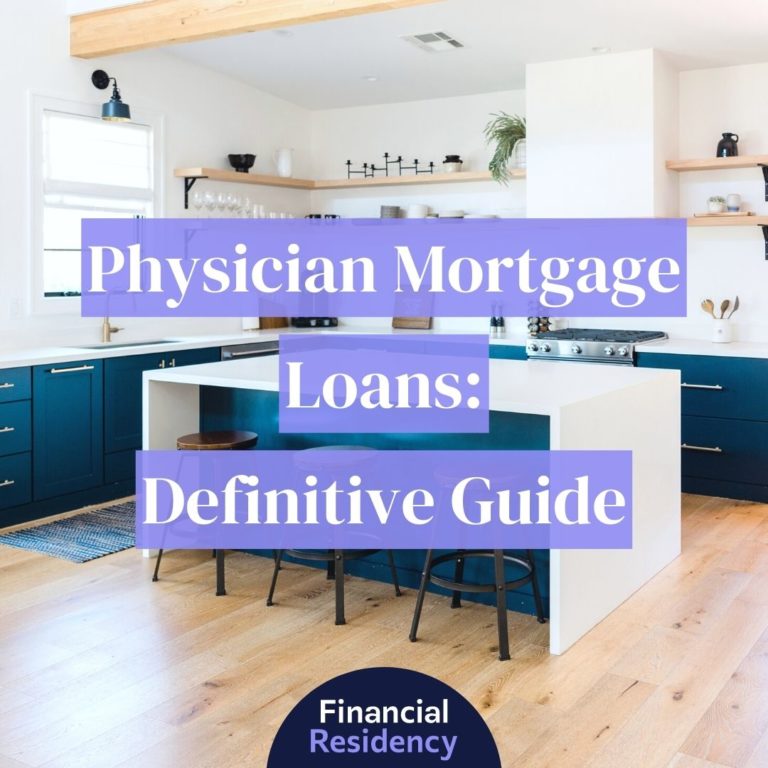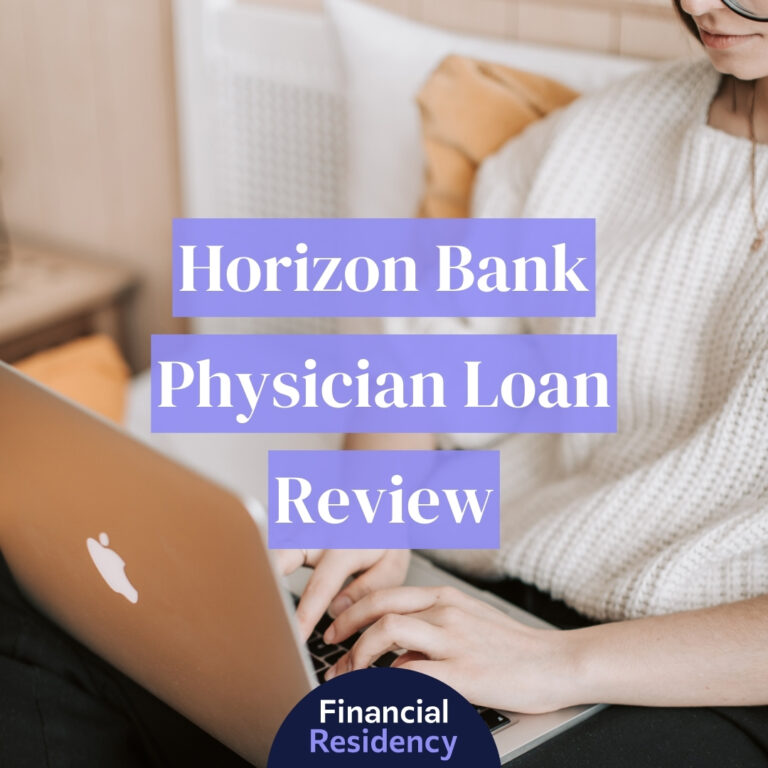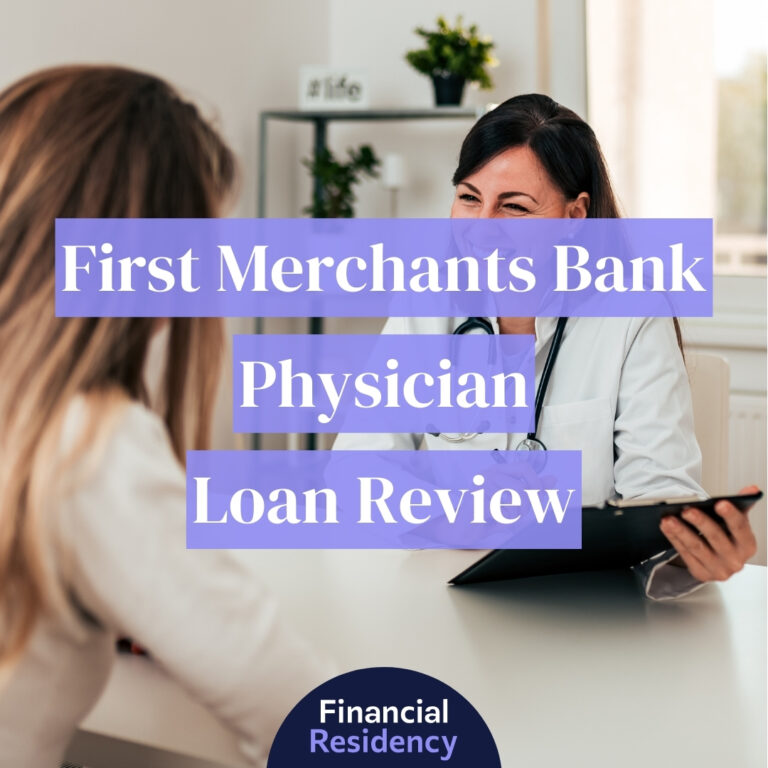Washington Trust’s physician mortgage program originates specialty financing for medical doctors who may not otherwise qualify for a conventional mortgage due to high student loan debt.
Physician home loans have more relaxed terms than traditional financing, including lenient down payment options, waived private mortgage insurance (PMI) , limited income history, and flexible debt-to-income calculations.
Continue reading to learn more about Washington Trust and its physician mortgage program, including financing amounts, options, and eligibility requirements.
About Washington Trust
The Washington Trust Company was founded in Rhode Island in 1800 and lays claim to being the nation’s oldest community bank. Its present-day headquarters remain in Rhode Island, and it is the second largest state-based financial institution.
Washington Trust Mortgage (NMLS# 414726) originates mortgage loans for various types of real estate, including residential and commercial property. It is a wholly-owned subsidiary of The Washington Trust Company.
- BBB score: A+
- CEO: Edward O. Handy III
- JD Power score: NA
- Parent company: Washington Trust Bancorp, Inc.
- Phone number: 1 (800) 475-2265
- Services offered: Small business and commercial banking, checking accounts, savings accounts, wealth management, retirement planning, certificates of deposit (CDs), money market accounts (MMAs), credit cards, auto loans, personal loans, and home loans
Washington Trust Physician Loan Fast Facts
Here are a few fast facts about Washington Trust’s physician mortgage program.
- Discounts: *None available
- Financing options: 100% financing up to $500,000, additional financing with a down payment, 95% financing on refinances
- Physician loan products: Adjustable-rate mortgages (ARMs) and fixed-rate mortgages
- Maximum loan amount: $1 million or up to $417K for medical residents
- Qualifying degrees: MD, DO, DDS, DMD, DVM, DPM
- Physician mortgage insurance (PMI): Not required
*Our editorial team has contacted the mortgage lenders for information about any promotions or rate discounts for Washington Trust Company account holders. The article will be updated with any current discounts or promotional offers.
Washington Trust Physician Loan Qualifications
Physician loans are not widely advertised on the website for the Washington Trust Company or Washington Trust Mortgage (WTM).
The program is open to a more limited group of consumers, and the loan underwriting is customized to each borrower. Still, there are general guidelines that do apply. Here’s a quick highlight of the qualifications to receive a Washington Trust physician home loan.
- Credit score:*680 – 710 minimum credit score
- Down Payment: 0% for loans up to $500,000 or required down payment for loans of $501,000 to $1 million
- Owner-occupied property: 1-2 unit primary residence, condominium, townhouse, or PUD
- Eligible degrees: Medical Doctors, Doctors of Osteopathy, Doctors of Dental Surgery, Dentists, Doctors of Veterinary Medicine, Doctors of Podiatric Medicine
- Significant savings: **No specified requirements
- Verified income: Pay stubs or signed employment contract with a start date of within 60 days of closing on the mortgage
*Estimated minimum FICO score range based on guidelines for similar physician homeownership programs. The editorial team has contacted the bank and will make any updates that WTM provides.
**The bank’s website does not indicate any requirement for cash reserves, however, the editorial team has contacted the bank for clarification.
Discover The Best Lenders Answer just a few questions about your career, where you're buying, and how much you want to borrow. Our service will then show you the exact programs you're eligible for from vetted physician loan specialists who will guide you through every step of the process – obligation-free!
How to Apply
Below is a general outline or steps borrowers will need to complete when applying for a physician loan. Understanding what’s expected at every stage can help the home-buying process go more smoothly.
Get Pre-Qualified
This is the first step in the home loan application process. You’ll provide the lender with some basic information: First-time homebuyer status, total household income, total monthly expenses, and an accounting of your debts and assets, including retirement account savings.
Generally, there is a soft credit pull. The bank will give you a rough estimate of how much financing you may qualify for, or the maximum home purchase price.
This information will also give you an initial idea of your mortgage options, including down payment requirements and monthly loan payment amounts.
Although this pre-qualification information is helpful, it’s not official. There’s no guarantee you will ultimately be able to receive financing for the pre-qualified amount. Still, this directional read is generally enough for you to begin looking at houses with a real estate agent.
Prepare Your Documents
The mortgage application process requires a substantial amount of paperwork. Washington Trust must diligently review your income, debts, assets, and eligibility to determine your risk.
Here are some of the documents you may be asked to provide:
- Bank account statements
- Tax returns (1-3 years)
- Proof of current income (1-2 months of pay stubs)
- Proof of future income (signed employment contract)
- Proof of medical credentials
- Driver’s license or government-issued identification
- Social Security number (SSN) card
- Letters of explanation (for gift funds or other unexplained assets)
Typically you can send digital copies to expedite the process. Original copies or certified copies are usually not required.
Credit Review
The bank will review your credit, doing a hard pull of your credit report. They are looking for a history of consistent, on-time payment with no delinquencies, liens, or judgments. They’re also evaluating the total number of credit inquiries (hard pulls) and total lines of credit.
Look over your report to make sure that the data is accurate and that there are no entries you don’t recognize.
Get Pre-Approval
At pre-approval, you’ll be given the total amount of home financing you qualify for. This process is more formal than the pre-qualification phase, and it’s a far stronger indicator to realtors and homeowners that you have the necessary assets to complete a home purchase.
For new physicians, the approval amount is generally at least $1 million. This figure is valid for 90 days, so it’s important to wait to get pre-approved until you are ready to seriously look at homes and commit to making an offer.
Some real estate agents will not begin looking at homes with prospective buyers until they have a pre-approval letter in hand.
Additionally, it’s not unusual for mortgage lenders to offer conditional pre-approval. A lender can impose caveats, such as lowering your DTI ratio or coming up with additional cash funds to cover closing costs.
From receiving pre-approval until you close on your new home, do not do anything that could negatively impact your credit score. This could include taking out financing for new furniture or home appliances — wait until you’re in full possession of your new house before you start furnishing it.
Confirm and Lock in the Rate
In addition to confirming your total financing amount, a loan officer will confirm your loan terms and interest rate. The rate is locked in for 45 days, so it’s important to close within that 45-day window. While that rate is good for 45 days, it can change before you finalize your home purchase.
Here are some of the factors that could affect rates:
- Federal Reserve changes the interest rate
- Market fluctuations
- Change in debt-to-income ratio
- Change in credit score
- Change in employment or income
- Loan-to-value ratio changes (appraised property value changes)
- Delays in closing — closing even one (1) day later can impact the rate
- Internal changes in the bank’s underwriting criteria
- Change loan products, such as going from a fixed-rate loan to an ARM
Washington Trust Physician Loan Alternatives
In addition to Washington Trust, many other banks offer doctor loans with favorable terms for interest rates and mortgage payments.
1. KeyBank
KeyBank operates a physician loan program that provides up to $3.5 million in home financing — substantially more than Washington Trust provides — however, it does not offer any no-money-down mortgages. At most, Key Bank provides financing of up to 95%.
The bank provides both fixed-rate and adjustable-rate mortgage products and has no PMI requirements. Its program is open to Doctors of Medicine (MD), Doctors of Osteopathic Medicine (DO), Doctors of Podiatric Medicine (DPM), Doctors of Dental Surgery (DDS), and Doctors of Dental Medicine (DMD). Interns, residents, and fellows in these fields are also eligible.
2. First Horizon Bank
First Horizon Bank offers a physician loan program that provides doctors with up to $2.5 million in home financing. The maximum amount is not as high as KeyBank’s $3.5 million, however, First Horizon will offer 100% financing on loans up to $750,000. Washington Trust, by contrast, offers 100% financing only up to $500,000.
Additionally, First Horizon Bank does not impose private mortgage insurance on physician loans and it will exclude student loans from its debt-to-come ratio, provided the loans are on deferment for 12 or more months and overall personal finances are steady.
First Horizon’s program is open to Medical Doctors (MD), Osteopath Doctors (DO), Podiatrists (DPM), and Oral and Maxillofacial Surgeons (OMS).
3. Flagstar Bank
Flagstar Bank is the nation’s seventh-largest bank originator of home mortgages and boasts one of the country’s most inclusive physician programs. The bank provides financing for a range of occupations — medical and non-medical — many of which are generally excluded.
Eligible degrees for a Flagstar physician loan include:
- Medical Resident (Educational License)
- Medical Doctor (MD)
- Doctor of Dental Surgery (DDS)
- Doctor of Oral and Maxillofacial Surgery (OMS)
- Doctor of Dental Medicine (DMD)
- Doctor of Optometry (OD)
- Doctor of Ophthalmology (MD)
- Doctor of Pharmacy (PharmD)
- Doctor of Podiatric Medicine (DPM)
- Doctor of Osteopathy (DO)
- Physician Assistant (PA)
- Registered Nurse (RN)
- Certified Registered Nurse Anesthetist (CRNA)
- Nurse Practitioner (NP)
- Clinical Nurse Specialist (CNS)
- Airline Transport Pilot (ATP)
- Certified Public Accountant (CPA)
- Attorney (JD)
- Veterinarian (DVM)
Flagstar will provide up to $1.5 million in physician home financing, including up to $1 million with no money down. The program has no PMI requirements, but borrowers must have very good to excellent credit; a minimum credit score of 720 is required.
4. Huntington Bank
Huntington Bank offers a physician mortgage program that provides up to $2 million in home loan financing, including zero money-down mortgages up to $1 million. The program is open to a narrower scope of professions than many other similar physician loans, however, it does have an easier loan process for borrowers with significant debt.
Doctor financing is offered to Medical Doctors (MD), Doctors of Optometry (DO), Doctors of Podiatry (DPM), Dentists (DMD), Doctors of Dental Surgery (DDS), Doctors of Oral & Maxillofacial Surgery (OMS), and Veterinarians (DVM).
A minimum credit score of 700 is required, although borrowers with lower FICO scores may qualify if they can put down a larger down payment (greater than 10%).
Additionally, Huntington Bank will allow debt-to-income ratios as high as 50% and it excludes student loans from the DTI calculation if the monthly payments are on deferment for at least 12 months.
5. U.S. Bank
U.S. Bank provides physician loans in all 50 states, with its program open to practicing doctors, residents, and medical fellows. Additionally, existing bank customers may qualify for discounts of up to $1,000 of the total loan amount.
The program is open to Medical Doctors (MD), Doctors of Osteopathy (DO), or Attorneys (JD). It provides financing up to $2.5 million with both fixed-rate and adjustable-rate mortgage options.
Although U.S. Bank does not have any zero money down loan products, it will provide financing of up to 95% for mortgages up to $2 million. Similar to Washington Trust and other banks on this list, U.S. Bank physician loans have no PMI requirements.
Eligible borrowers must have at least three (3) to 12 months of cash reserves (dependent on loan amount) and a minimum credit score of 710. Additionally, U.S. Bank does include student loan debt in its calculation of your debt-to-income ratio.
Pros and Cons
Here’s an overview of the pros and cons of Washington Trust’s physician mortgage loans.
Pros
- 100% financing options — the bank offers zero money down loans up to $500,000
- No private mortgage insurance (PMI) requirements — this can save up to 2% in monthly loan repayments
- Deferred student loans are excluded from the debt-to-income (DTI) ratio
- ARM and fixed-rate financing options
- Open to residents and interns — those who have a degree in a qualifying field can receive financing up to $416,000 (41.6% of what is offered to physicians who have completed their training)
Cons
- Relatively low mortgage caps — Washington Trust provides physician financing of up to $1 million, just about the lowest maximum doctor home loan financing you’ll find anywhere
- Not available in all 50 states*
*Our editorial team has contacted the bank for a full list of states offering doctor loans and will update the article with any information provided.
Frequently Asked Questions
Does Washington Trust Offer Doctor Mortgages for Second Homes?
No, Washington Trust’s physician program provides financing only for owner-occupied primary residences: 1-2 unit primary residences, condominiums, PUDs, or townhomes. The program specifically excludes investment property and second homes.
There are, however, other banks that do provide physician home loans for secondary properties and other dwelling types including:
- Laurel Road
- Northpointe Bank
- UMB Bank
Can Doctors Get an FHA Loan?
Anyone who meets the criteria for an FHA loan can receive FHA financing; being a doctor will not exclude you from this type of financing if you are a first-time homebuyer.
However, FHA loans do take into account student loan debt which means it can be much harder for physicians to qualify for FHA financing. Lenders set their debt-to-income ratio criteria, but the upper limit is generally 40% to 47%.
For a new doctor with student loans averaging $200,000+, even with a starting salary at the average physician pay of $352,000, this puts FHA financing out of reach. These figures alone would put your DTI ratio at 57%.
New doctors with little to no student loan debt could pursue FHA financing, although the maximum loan amount for 2024 ranges from $498,257 to $1,145,825 depending on local market housing prices. FHA financing often isn’t enough to cover a doctor’s dreamhouse.
Is a Physician Loan a Conventional Loan?
No, generally physician loans are not considered a conventional loan. Physician loans have a specific and unconventional purpose: Meeting the home financing needs of high-debt professionals with significant future earning potential.
Even when packaged as a fixed-rate loan, physician mortgages virtually always have custom underwriting, no PMI requirements, and a more generous allowances made for medical school debt.





